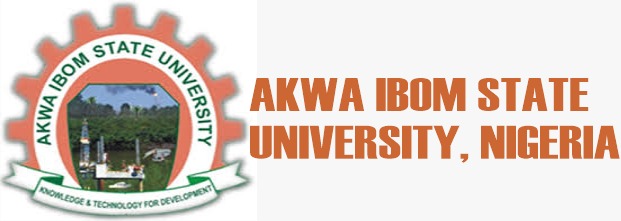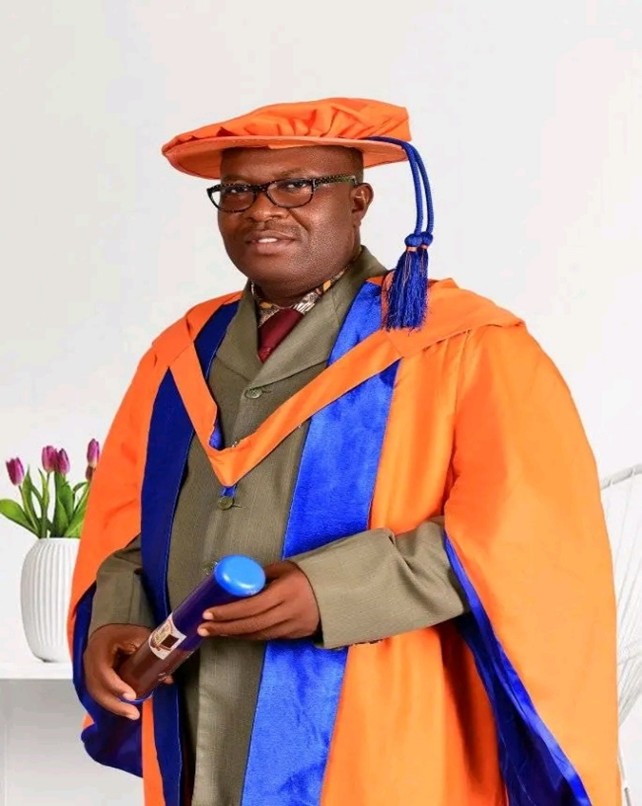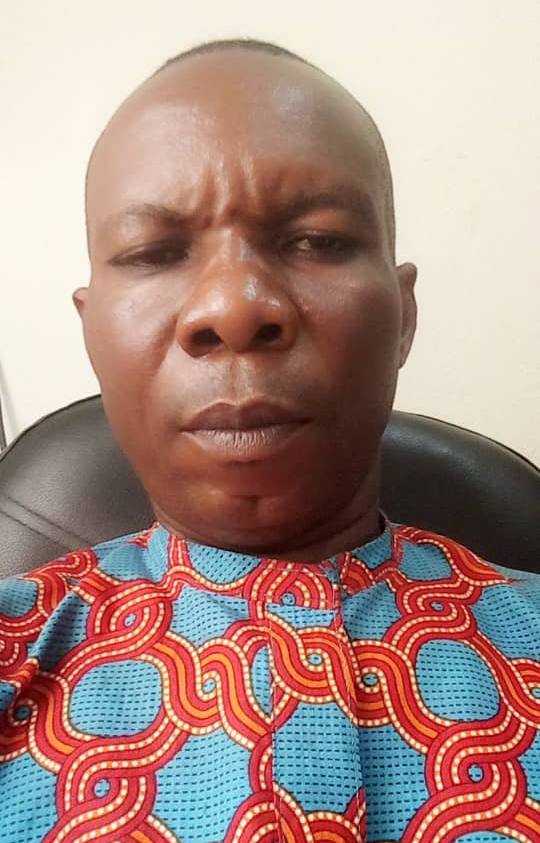PREFACE
The Department of Religious Studies occupies indispensable and enviable position among the programmes in Akwa Ibom State University, being the mother of all departments and all social set-ups where human beings are found. This is so because humans, the only being that has capacity for ‘self-transcendence’, are religious from cradle to the grave. Religion is so influential that everyone is interested in it, even those who do not practice it discuss it. The advancement in Information and Communication Technology (ICT) in recent time has made the world to be a global village. Hence, inter cultural communications and interactions among the peoples of the world have increased. Unlike before, people now interact with those who profess religion(s) other than their own. Therefore, the knowledge of other people’s ideologies and faith is necessary to grasp their perspectives as per the meaning of life. This is believed, will aid inter- cultural communications and interaction.
Since its inception in 2012/2013 academic session, the Department has contributed immensely towards actualizing the vision of the University by providing qualitative teaching using approaches that are guided by global best practices, and conducts; training competent students who graduate to contribute positively to society.
This new curriculum of the Department is prepared in line with the Core Curriculum Minimum Academic Standard (CCMAS) newly introduced by the National Universities Commission (NUC), reflecting the 21st realities, in the existing and new disciplines and programmes in Nigerian universities. In the CCMAS, the NUC provides 70% core course requirements for graduation, while the universities provide the remaining 30% for other innovative courses that reflect the peculiarities of and realities in their environments. Hence, the Department, under the leadership of the past Acting Heads of Department, and other lecturers brainstormed, structured and provided the local contents requirements.
The new curriculum is packaged in a way that it reflects the actualization of the mission of the University and is geared towards addressing socio-cultural and religious realities in Akwa Ibom State and the entire country. The courses are meticulously designed and crafted to equip the graduates of Religious Studies not only with the knowledge of various religious traditions of mankind, but also with literary and entrepreneurial skills needed for relevance and fulfilment in the 21ist century.
The Department therefore owes a debt of gratitude to the NUC, the Akwa Ibom State University and the various scholars who paid critical roles in making sure this new curriculum is realized.
Thank you.
Dr. Asukwo E.Oko
Ag. Head of Department
Introduction
The Department of Religious Studies: A sketch, programme offered for postgraduate programme – African Traditional Religion and Islamic Studies
The Department of Religious Studies of Akwa Ibom State University came into existence in the year 2012 alongside five other departments in the Faculty of Arts, Obio Akpa Campus. The department first went through preliminary scrutiny of the inspection team of the National Universities Commission and the approval to start academic programme was granted in June 2012. The Pioneer Head of Department was Dr. Iniobong Umotong drafted from the Department of Philosophy at the beginning. He served for one academic session and was succeeded by Rev. Fr. Prof Vincent Gabriel Nyoyoko. When academic programme commenced for the first Semester of 2012/2013 session there were three members of staff, namely Prof. Vincent Gabriel Nyoyoko who also served as Dean, Mr. (now Dr. Vincent Akinbayo Olusakin and Sr. (now Dr. Stella Patrick Essien. Also co-opted from the Department of Philosophy for the first semester was Rev. Fr. Dr. Christopher Nse Etokudoh. In the second semester late Dr. Joseph Okon, Dr. Ephraim Essien and Mr (now Dr. Inameti L. Udo, all from the Department of Philosophy also came in to lend helping hands,
The Department started with a student population of 26. Now, the student population in the Department has increased to over 260 students. The four-year programme in the Department started in earnest in the 2012/2013 session and since then the department has painstakingly intensified rigorous academic activities geared towards securing accreditation and graduation of students at the earliest possible time.
Read More...
With full accreditation of her undergraduate programme from the National Universities Commission (NUC), the Department has graduated over six sets of graduates with Bachelors of Arts (B.A.) Degrees, and has over two hundred undergraduate students at different levels of studies. Also, additional competent lecturers have been employed by the University, which include, Dr. Dominic S. Umoh ( Associate Professor), Dr.John Bosco Ekanem (Associate Professor), Dr. Goka M. Mpigi, Dr. Casmir P. Uyanga, Dr. Asukwo E. Oko and Dr. Aniekan E. Nana. Since inception, the Department’s curriculum was designed to expose students to a wide range of core socio-religious and cultural courses covering different religious traditions in African, Asian, and Western countries. Together with other elective courses, these courses prepare graduates for challenges of individual and societal development as well as nation building. The undergraduate programme is studied for either four-years or three years, depending on mode of admission which is either through UTME or Direct Entry, respectively. Both modes of study lead to the award of the B.A. (Hons.) Degree.
Moreover, the Department has been authorized by the National Universities Commission (NUC) to offer postgraduate programme, which lead to award of both Master of Arts (M.A.), and Doctor of Philosophy (Ph.D), Degrees in different areas of specializations including African Traditional Religion, Biblical Studies (Old and New Testaments), Philosophy of Religion, Religious Ethics, Church History and Sociology of Religion. With the authorization and commencement of operations in 2019/2020 academic session, the Department has trained and is still training postgraduate students at these two levels
Rationale for the Establishment of the Department
The rationale for the establishment of the department is derived from the experience and demands of the society the programme is designed to serve. To this end, the programme envisions the need:
- To cater for the interest of students offering a full four-year or three-year B.A. Degree in Religious and Cultural Studies as well as that of the Faculty of Education students who have Religious Studies as their teaching subject.
- To keep faith with the time-honoured tradition of religio-cultural scholarship, which recognizes change and innovation as the core of religious studies. To understand the nature and direction of this change, it becomes expedient that the study of religious studies, especially its scope and techniques should change from time to time. The need to address this apparent challenge is therefore a major impetus for the review and modification of the traditional Department of Religious Studies focus.
- To remain relevant to the changing demands of the dynamic local, national and international community. As we enter the Twenty-first century there is an array of greater and more complex challenges the Religious Studies graduate has to confront in order to adjust and modify the intellectual and the professional foundations of his skills to be able to contribute meaningfully, and benefit maximally from the challenges and opportunities the new millennium presents.
Read More...
4. To maintain the plausibility and interdisciplinary nature of this programme in meeting the expectations and needs of the contemporary age, as religion is best studied in the context of a people’s culture, and as no religion has ever emerged except within a culture and vice-versa, this programme is hereby presented. Again, as a fundamental institution of society, a multidisciplinary approach to the study of religion is necessary in order not to leave out other structural properties of culture that link up with the religions of people in the actual functioning of society.
Philosophy of the Programme

The course is designed to cover all the facets of religious phenomena as they affect the history, tradition, economic, social, political and ethics of man. The effect of this approach is to develop man in his existential reality to produce an all-round society in realizing life objectives. Thus, emphasis is placed on those religious traditions which have the greatest importance in the history of Africa – the various Indigenous Religious Traditions, Christianity and Islam and Indian religions with their ethical demands.
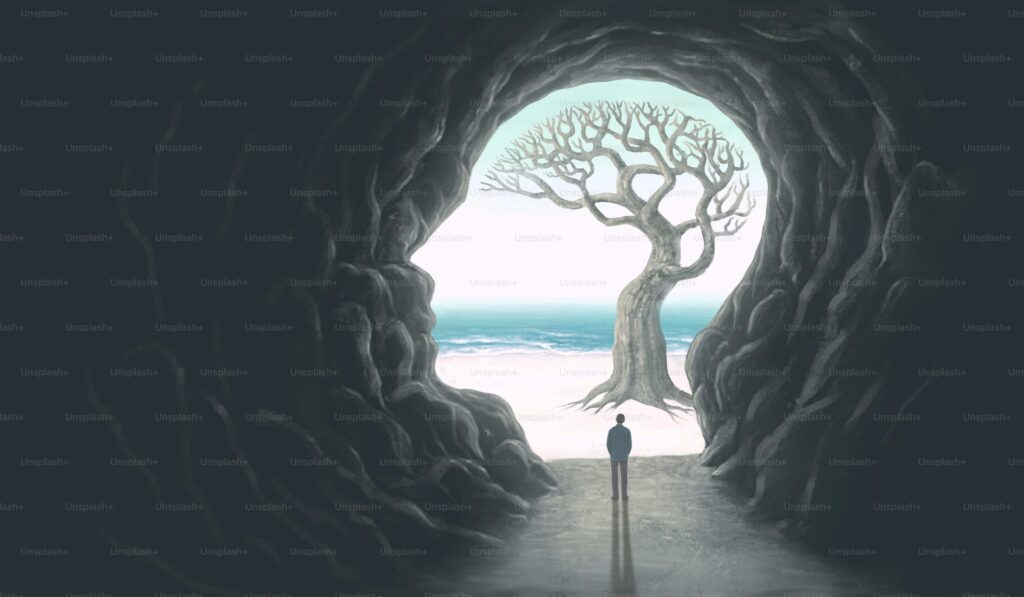
Objective of the Programme

1. acquaint students with the main contents of the major religious traditions commonly practised in Africa, namely: Christianity, Islam and Traditional Religion. The programme does not present any religious system as a sui generis exclusivist system; hence it also delves into other world religious phenomena such as Buddhism, Hinduism, Shintoism, Zoroastrianism and Jainism;
2. equip the products of this programme for the teaching career, administration, social work and offer them solid academic background for professional degrees in Journalism and Law;
3.orient students towards developing minds of a broad spectrum conducive to a pluralistic society such as Nigeria; and
4. prepares students for further studies in the discipline.
CURRENT SECRETARIAT AT A GLANCE
A Word from the HOD
We warmly welcome our alumni, prospective and continuing students, faculty, staff, and other stakeholders to the Department of Religious Studies, Akwa Ibom State University. We sincerely appreciate your interest in our Department. Our vision is to provide leadership in the study of religion and culture in Africa and beyond. We are committed to offering high-quality academic engagement with religion and culture from African perspectives, with the goal of becoming a globally recognized centre of excellence in this field. We strive to deliver qualitative teaching based on global best practices, producing competent graduates who make positive contributions to society. Equally, we are dedicated to continuous staff development, exposing our academics to both local and international competitive research opportunities. In addition, we seek to foster strong collaborations with renowned universities worldwide for mutually beneficial research partnerships. Since the Department’s inception and its first Headship in 2012, these objectives have remained central to our vision and mission across successive administrations. We warmly invite you to join us in sustaining and advancing this noble pursuit.
Dr. Asukwo E. Oko
Dip. Theo., OND, B.A, M.A., Ph.D
ORGANIZATIONAL STRUCTURE
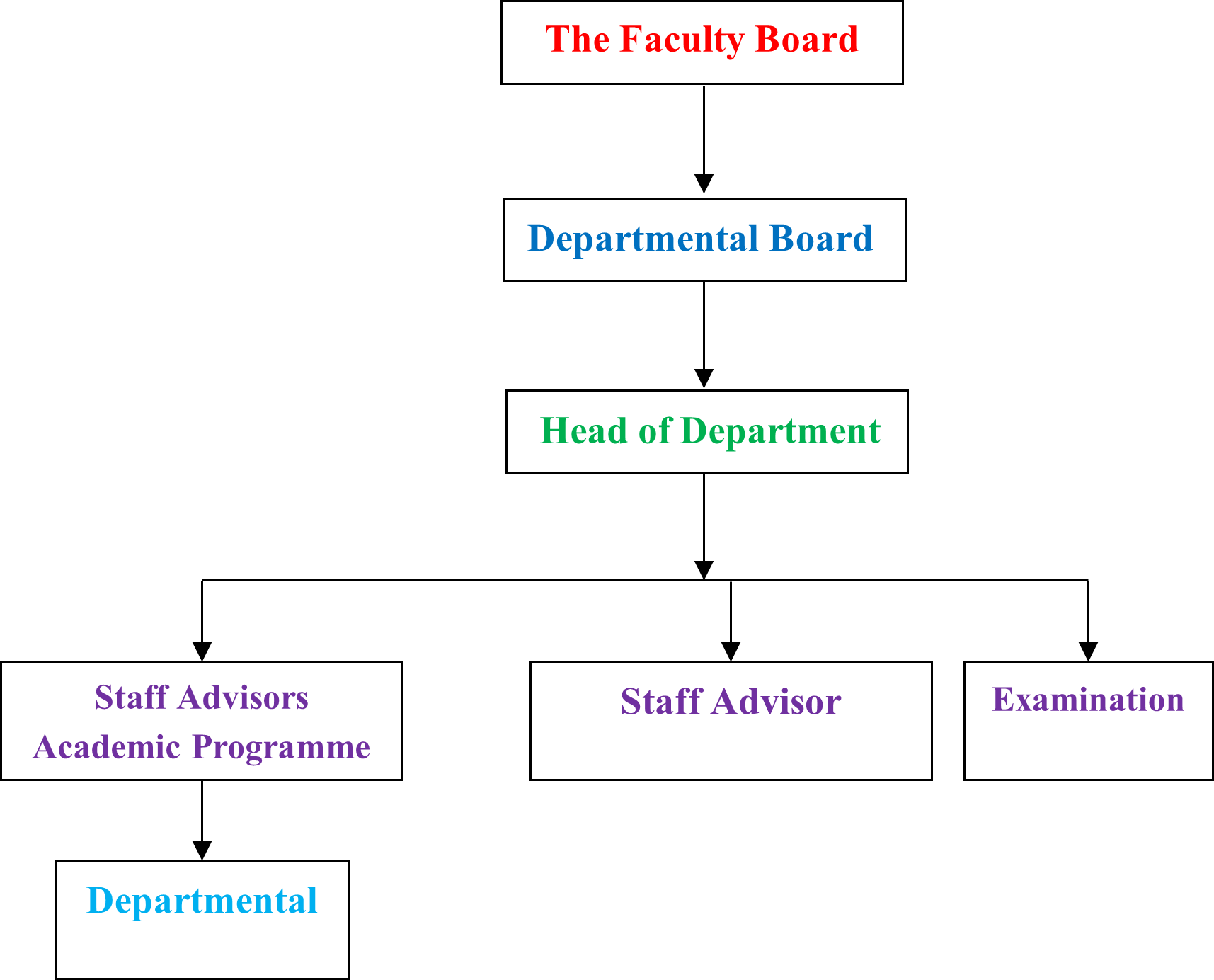
PAST HEADS OF DEPARTMENT
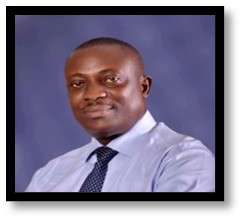
Dr. I. Umuotong
2012-2013
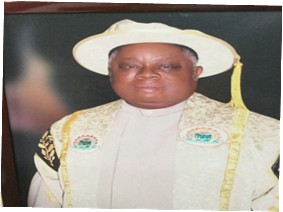
Prof. V. G. Nyoyoko
2013
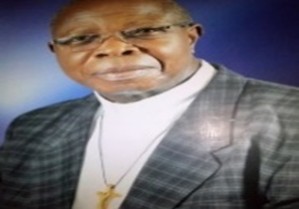
Dr. Dominic S. Umoh
2013-2017
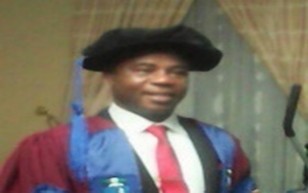
Dr. Goka M. Mpigi
2017-2021
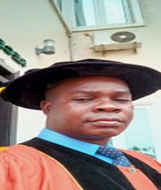
Dr. Vincent A. Olusakin
2021-2023
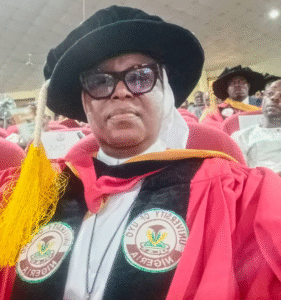
Rev. Sr. Dr. Stella P. Essien
2023-2025
CURRENT ADMINISTRATIVE STAFF
Akpan, Ernest Jonah
The Current Secretary of the Department
Akpan, Ernest Jonah is the current Departmental Secretary serving the office of the HOD directly and also serving other arms of the Department. His responsibilities include preparation of the HOD’s itinerary, processing of all in-coming and out-going correspondences for the HOD, and reception of visitors on behalf of the HOD. Mr Ernest can be reached at secretary office of the Department in Faculty of Arts Block as well as his phone contact, 08030910325. Mr Akpan, Ernest Jonah holds HND in Secretariat Studies (Akwa Poly) and PGD in Business (UniUyo)
OTHER ADMINISTRATIVE STAFF
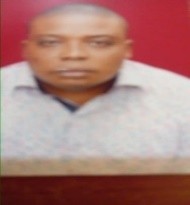
Uduaobong George Udo
Senior Assistant Registrar
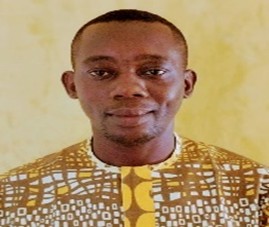
Imeofon Anietie Ekaette
Assistant Chief Executive Officer
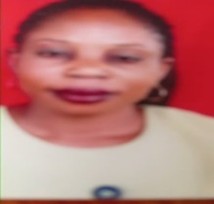
Rose Friday Sam
Chief Clerical Officer
TEACHING STAFF
(Click on the photo for Profile)
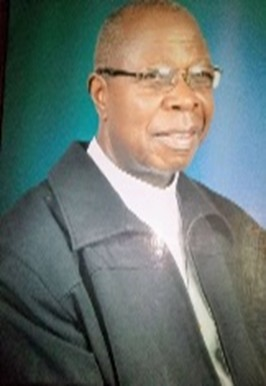
Associate Prof. Dominic Sunday Umoh
Philosophy of Religion & Religious Ethics
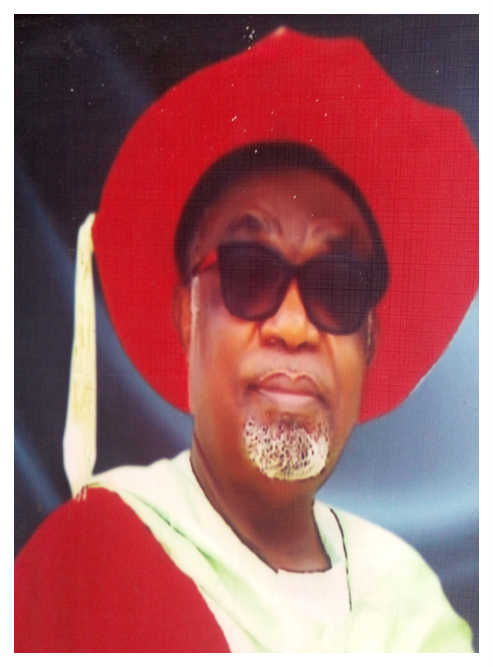
Professor John Bosco Ekanem
Anthropology specializing in Legal Anthropology and Anthropology of Religion

Dr. Vincent Akinbayo Olusakin
Senior Lecturer and PG. Coordinator, Department of Religious and Cultural Studies
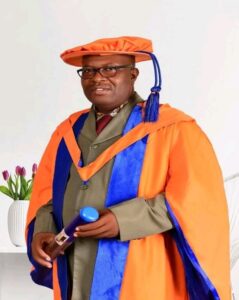
Dr. Asukwo Edet Oko
Acting Head of Department and Student’s Academic Adviser
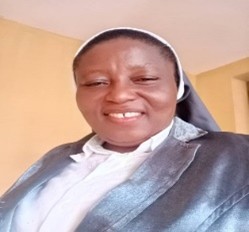
Dr. Stella Patrick Essien
Senior Lecturer and former head of the Department of Religious and cultural studies
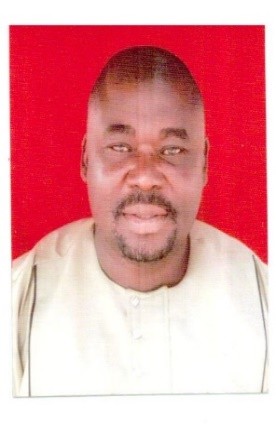
Dr. Aniekan Etim Nana
Lecturer in the Department of Religious Studies
WHAT STANDS US OUT
Employability Skills Emphasised

Graduates of this programme will possess literary and entrepreneurial skills which include ability to write books, ability to be involved in film production, drama, and documentation. They would also be able to project faith and morals through their literary works. They would be able to establish, run schools and get involved in economic activities in the different religions Familiarity with economic activities in the different Religions
21st Century Skills Emphasis

The program would lead to the development and acquisition of the following 21st century skills;
- teamwork spirit;
- digital literacy;
- creativity;
- communication skills; and
- societal problem solving skills
Unique Features of the Programme

At the end of the program the students will be equipped with the religious concepts that promote creativity and the economic activities they can delve into in other to be self-employed. They would have been equipped with creative abilities and motivated to solve societal problems through Innovations and risk-taking for-profit, having been exposed to the all-encompassing issues in religious studies (health, dietary rules, economy, arts-and-crafts, literary education).
Read more...
Movement and activities of religions and practitioners internationally is one of the unique features of the program. It will expose students to gender issues to enhance equality of males and females in religious practices and ensure contributions of both sexes to the overall development of the society in general. Religions and their teachings on sexuality is also emphasized to provide guidance and influence attitudes and value systems positively.
Admission and Graduation Requirements
Admission Requirements
The Department admits candidates for two sets of full-time undergraduate programmes: Admissions into the Akwa Ibom State University shall be through the Unified Tertiary Matriculation Examinations (UTME) conducted by the Joint Admissions and Matriculation Board (JAMB) or Direct Entry. In Addition to attaining the general required standard in UTME, candidates must satisfy the general University requirements as well as the specific School/Faculty and programmes requirements. All admissions shall be through JAMB.

Graduation Requirements
Students must take 120 units and these include all the departmental core courses, faculty courses, and the general studies courses (70% of the 120 units) and the prescribed courses in the University (30% of the 120 units) before graduation.
Academic Programmes
At the moment, the Department runs B. A. (Hon.) in Religious Studies, M.A. and Doctorate programme.
Duration of Programme
The B.A. (Hons) Full-time programme through the UTME normally takes four years to complete. The maximum is six years. B.A. (Hons.) Full-time programme through the Direct Entry lasts for a minimum of three years and a maximum five years,
Postgraduate Programmes
Admission Requirements
- a) Master of Arts Programme
All candidates must possess a minimum of five Ordinary Level Credit Passes which must include English Language and any four of the Arts and Social Science subjects.
Candidates must possess a good Bachelor’s degree in Religion and its variants (e.g. Religious Studies, Religious and Cultural Studies, Religious Management and Cultural Studies, Islamic or Christian Religious Studies, Theology, etc.), not lower than a Second Class Lower division, from a recognized university.
All candidates shall be subjected to a selection process.
- b) PhD Programme
Candidate must possess a good Master’s degree in Religion or its variants from a recognized university, with a CGPA not below 3.5 on a five-point scale. Candidates who did not make up to 3.5 will be required to register for the M.Phil/ PhD programme. Such candidates must present two seminars and a research proposal for grading and must score a minimum CGPA of 3.5 before proceeding to the PhD, otherwise the MPhil Degree should be awarded upon the submission of a thesis. This thesis should be examined following the procedure of a PhD thesis.
Duration of Programme
Master Degree Programme
Full-time: Minimum of three (3) semesters and a maximum of six (6) semesters.
Part-time: Minimum of four (4) semesters and a maximum of eight (8) semesters.
Master degree shall carry a minimum work load of 30 credit units of which 6 credit units are for the thesis
For all postgraduate coursework, the minimum pass score shall be 50%; continuous assessment shall constitute 30-40% of the examination for each course
Any student, who fails in any course, shall repeat such a course;
Any student whose CGPA falls below 2.50 after the second semester is deemed to have failed, and shall be withdrawn from the programme.
PhD Programme
Full-time: Minimum of four (4) semesters and a maximum of ten (10) semesters.
Part-time: Minimum of six (6) semesters and a maximum of fourteen (14) semesters.
Ph.D – A minimum workload of 27 credit units of which 9 credit units are for the thesis.
For all postgraduate coursework, the minimum pass score shall be 50%; continuous assessment shall constitute 30-40% of the examination for each course
Any student, who fails in any course, shall repeat such a course;
Any student whose CGPA falls below 2.50 after the second semester is deemed to have failed, and shall be withdrawn from the programme.
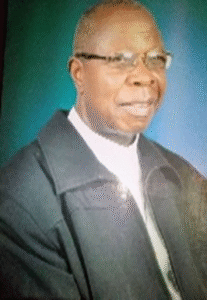
Professor Dominic Sunday Umoh
Dominic Sunday Umoh is an Associate Professor of Philosophy of Religion and Religious Ethics. He obtained his Ph.D. in 1992 from the prestigious University of Louvain, Louvain-La-Neuve, Belgium. His M.A. in Philosophy came from the same university in 1988. His Masters in Moral and Religious Sciences M. M. Rs. was obtained from KUL, Leuven, Belgium in 1989, while his Bachelor of Divinity in Theology was granted in 1984 by Urban University, Rome. Dr. Umoh obtained his B. A. in Philosophy, in Rome in the year 1980. He has other substantive certificates in German and French languages to embellish his CV. He has about fifty standard publications in foreign and local media, one of which on the Biafran War, Souvenirs de la Guerre Civile au Nigéria, has been published in French language and is winning a popular applause in francophone libraries and bookstores. He has been a seasoned lecturer in his related fields for the past twenty-nine years. He is a member of the following Professional Bodies: National Association of Catholic Philosophers (NACAP), Catholic Theologians Association of Nigeria (CATHAN), Association des Anciens le L’institut Supérieur de Philosophie et de L’Ecole de Philosophie, Louvain-La- Neuve, Belgium, Association des Auteurs chez Edilivre, France, Member Society for Research and Academic Excellence. University of Nigeria Nsukka and National Association for the Study of Religions (NASR). All these years he has served as Acting HOD and Dean in some universities. He has moderated some doctorate and Masters’ theses in addition to the innumerable undergraduate projects. He can be reached on this line: +2348025468902 and through this email: dominicumoh@aksu.edu.ng.
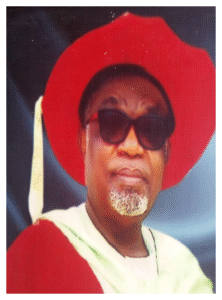
Professor John Bosco Ekanem
John Bosco Ekanem is an Associate Professor of Anthropology specializing in Legal Anthropology and Anthropology of Religion, with particular emphasis on rituals which is at the heart of Anthropology of Religion. He holds PhD (Legal Anthropology), Certificate of Advanced Studies in Legal Anthropology, M. A. (Legal Anthropology), PGDE, B. D. His works numbering over 45 can be accessed through the following links: Google Scholar Link: http://worldcat.org/identities,;and Researchgate Link: https://www.researchgate.net/publication/336242356. He is a member of the following Professional Associations: International Commission on Folk Law and Legal Pluralism, Canada, since 2002, International Union of Anthropological and Ethnological Sciences, Canada, Society for Research and Academic Excellence, University of Nigeria, Nsukka, National Association for the Study of Religions (NASR); Catholic Biblical Association of Nigeria (CABAN); Catholic Theological Association of Nigeria (CATHAN); Annang Minorities Studies Association (AMSA). He can be reached at his office in the Faculty of Arts Block, on his phone: +234804557340, and through his email: johnekanem@aksu.edu.ng

Dr. Vincent Akinbayo Olusakin
Vincent Akinbayo Olusakin is a Senior Lecturer and immediate past Head of the Department of Religious Studies at the Akwa Ibom State University. He holds PhD (New Testament Studies, UPH, 2015), M.A. (Religious and Cultural Studies, UPH, 2011), M.A. (Theological Studies, UMCATC, 2003), B.A. 1st Class Honours (Religious and Cultural Studies, UPH, 2007), and Bachelor of Theology (UNIDICO, in affiliation with Acadia University, Canada,1998). Dr. Olusakin holds the prestigious Charles Nwanoke’s Prize for the Best Overall Graduating Student in the University of Port Harcourt in 2007 and the prize for the Best Student Academically at UNIDICO. His areas of specialization and sub specializations include New Testament and Christian Theology /African Church History. Among others, the focus of his research is to engage Biblical texts and theology to critique attitudes towards the vulnerable in society. The strong focus of many of his academic work is to engage the nexus between Christian beliefs and attitudes toward the environment and women as well as to explore the relationship between human development and sustainable peace from Biblical perspective. His areas of research interests therefore revolve around Eco-theology, Church and HIV/AIDS, Gender Studies, Peace and Conflict Studies, and Pentecostal churches. His purpose is to engage these areas to suggest the right attitude that can make the society a better place to live. His works numbering over 45 can be assessed through his Google Scholar’s link: https://scholar.google.com/citations?user=9HYq59oAAAAJ&hl=en. He has participated and presented papers in conferences and seminars in these areas. Dr. Olusakin has contributed chapters in books on Religious Studies and other related areas. Also, he has scholarly papers published in reputable local and international journals. He has successfully supervised many undergraduate and postgraduate projects. Dr. Olusakin is a member of learned societies like Nigerian Association for Biblical Studies (NABIS), National Association for the Study of Religions (NASR), Biblical Research Forum of Nigeria (BRESFON) and Society of Biblical Literature (SBL). He is a member of the Editorial Board of Bulletin of Ecumenical Theology and AKSU DIAKONIA: Journal of Religion and Culture. He has served as member in various committees in the Department of Religious Studies and Faculty of Arts and had been an Examination Officer in the Department. Presently, he serves as Students’ academic adviser and Departmental Coordinator of Postgraduate Programme. Dr. Olusakin is married with children. He can be reached at his office in the Faculty of Arts Block, on his phone: +2348074953812, and through his email: vincentolusakin@aksu.edu.ng

Dr. Asukwo Edet Oko
Asukwo Edet Oko had his primary education at Government Primary School Ekim from 1979-1985 with Distinction. He attended Community Secondary School, Udung Uko from 1985-1993 where he obtained Senior School Certificate. He gained admission into School of Accountancy and Business Studies, Uyo and obtained a Diploma in Accounting. At Cliff College International Training UK, he had International Diploma in Applied Mission and Outreach. He also had Diploma in Theology from Methodist Theological Institute (In Affiliation with the University of Port Harcourt). He had his first degree in 2005 with Second Class Upper Division in Religious and Cultural Studies (BA. Hons) from the University of Port Harcourt and later had his Master degree and Ph.D in 2010 and 2013 respectively from the Nnamdi Azikiwe University, all in Religion and Society. Dr. Oko has
taught in the University of Ibadan distance study center as part-time lecturer and Methodist Theological Institute, Sagamu Ogun State, (an affiliate of the University of Ibadan) before he gained appointment into Akwa Ibom State University (AKSU). He has supervised over sixty undergraduate student projects and ten Master’s and five Doctoral theses. He has attended and presented papers in conferences and also has more than 50 publications in local, National and International Journals which can be assessed through his Google Scholar’s link:
https://scholar.google.com/citations?view_op=list_works&hl=en&hl=en&user=_my1QBEAAAAJ&pagesize=80. Dr. Oko is a member of the following professional organizations: Researcher International Network; Nigerian Association for the Study of Religions; and Nigerian Association for Biblical Studies. He is an Associate Editor of the Editorial Board of AKSU DIAKONIA: Journal of Religion and Culture. He has served as member in various committees in the Department of Religious Studies and Faculty of Arts and had been an Examination Officer in the Department. Presently, he serves as the Acting Head of Department and Student’s academic adviser. Dr. Oko is married and blessed with four children. He can be reached at his office in the Faculty of Arts Block, on his phone: +2348037297842, and through his email:
asukwooko@aksu.edu.ng.

Dr. Stella Patrick Essien
Stella Patrick Essien specializes in Old Testament and Cultural Studies. She is the current Acting Head of the Department of Religious Studies. She had represented the Department in the University Quality Assurance. She has been involved in a number of researches and publications as can be accessed through. https://scholar.google.com/citations?hl=en&user=Bw2NKOMAAAAJ
She is a member of the following Professional Associations: Catholic Biblical Association of Nigeria (CABAN); National Association for the Study of Religions (NASR); Nigerian Association for Biblical Studies (NABIS); Catholic Theological Association of Nigeria (CATHAN); Catholic Biblical Movement of Nigeria; Biblical Research Forum of Nigeria (BRESFON). In 2006, she received the Dean’s Award, Faculty of Education, University of Port Harcourt as the best graduating student. She is a holder of the Fellowship of the University of Innsbruck, Austria on “Cultural Encounters – Cultural Conflicts”. She can be reached at her office in the Faculty of Arts block, on her phone +2348037096449 and through her email, stellaessien@aksu.edu.ng
PhD (Bibl. Stu); M.A. (Bibl. Stu,); B.A (Ed) (Rel. & Cult. Stu.); Certificate in Education
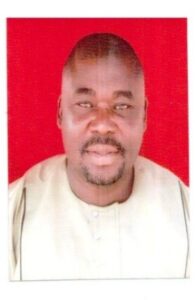
Dr. Aniekan Etim Nana
Aniekan Etim Nana is a scholar of African Traditional Religion, who has a strong letch for African Religion. His special interest is in African Medicine. He has many articles in his area of specialization. Few of his works are; The Impact of Ecology in African Traditional Religion, Ritual Sacrifice; An Essential Element of Ibibio Traditional Religion and Culture; Healing in Traditional African Society; African Traditional Religion Oath Taking and Resource Management in Nigeria; Western influence in African family values; Widowhood Practices in Traditional Ibibio Society; A Critical Appraisal; Traditional Religion: A Panacea for Nigeria National Development; Eco-Justice and Ibibio Traditional Religion and Sustainable Development; Ekpo Nka Owo: A Mechanism Designed by Ibibio Elders to Foster Sacredness of Sex Ethics in Ibibio and; The Perception of Death in Ibibio Society and many others. Dr. Aniekan Nana is a member of the following professional bodies; Nigerian Association for the Studies of Religions (NASR), Nigerian Association for Biblical Studies. He has attended many conferences and currently a lecturer in the Department of Religious Studies, Akwa Ibom State University, Obio Akpa Campus.
PhD (ATR) , MA (ATR),
BA (Rel &Cult. Stu.) Dip (Theo)
Int Dip (Mission and Applied Evangelism)
